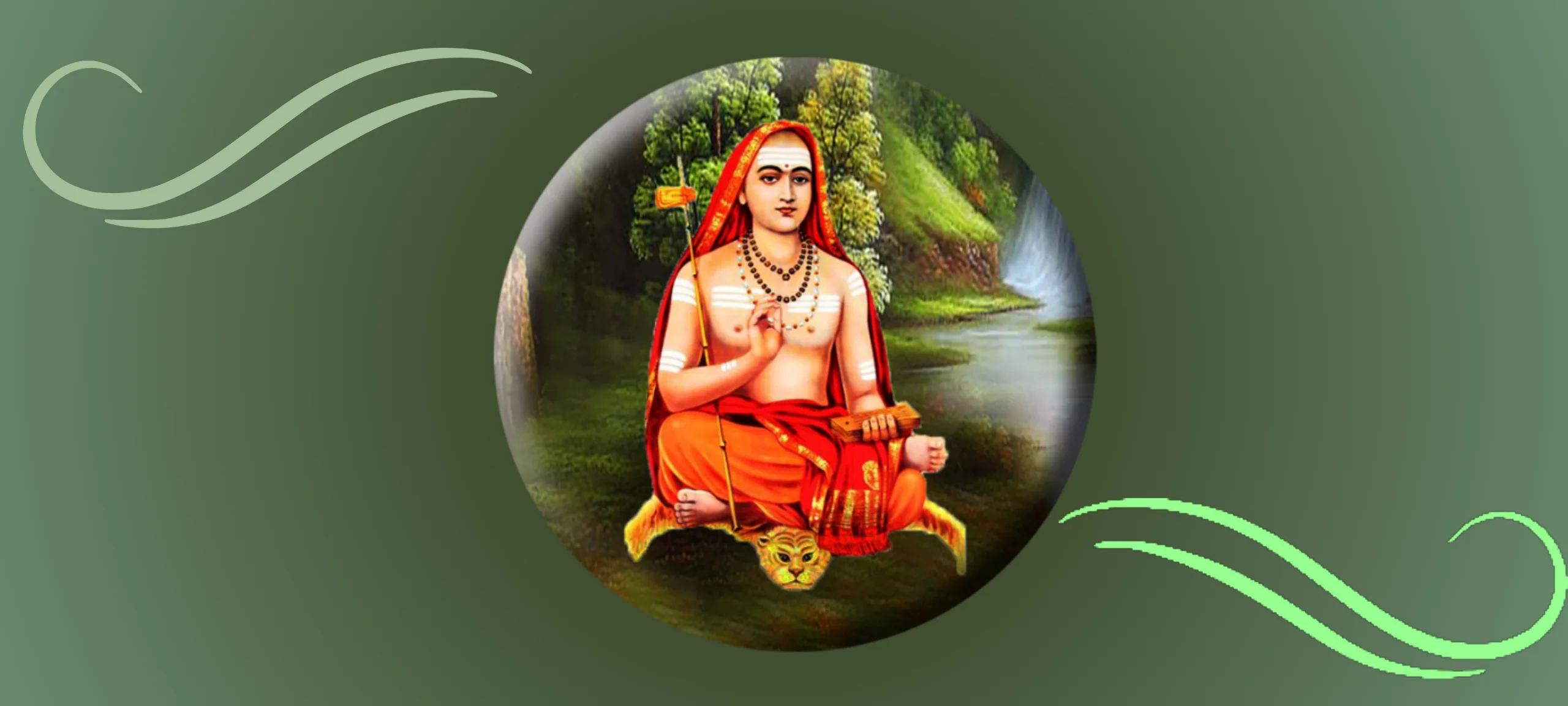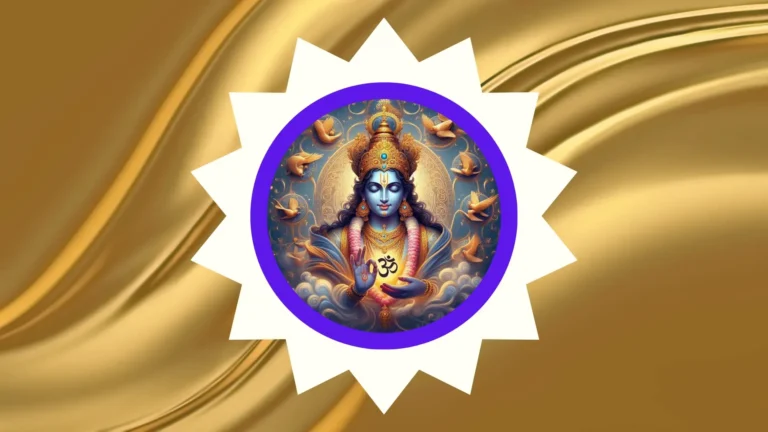Please Like the Blog and Share it for Maximum Reach
Table of Contents
Sadhana Panchakam Verse-01
वेदो नित्यमधीयतां तदुदितं कर्म स्वनुष्ठीयतां
तेनेशस्य विधीयतामपचितिः काम्ये मतिस्त्यज्यताम् ।
पापौघः परिधूयतां भवसुखे दोषोऽनुसन्धीयता
मात्मेच्छा व्यवसीयतां निजगृहात्तूर्णं विनिर्गम्यताम् ॥१
Translation
One should reflect upon The Veda in all seriousness. One should pursue The Actions that follow this Wisdom. These actions should fulfill, one’s Existence.
One should relinquish the Desires from the mind. Through Sadhana practice, one should cleanse mental Impurities. One should understand the fleeting nature of pleasures. One should focus one’s desire only on the Self.
The Sadhaka should thus return to one’s own true abiding place, the Self.
Explanation of the Verse
Nature of Veda and Brahman
The word Veda is profound and has multiple connotations at different levels of inner realization. At one level, Veda means the Scriptures. At another level it means Truth.
Sometimes, it means the word of God. But in the truest sense, it stands for the Ultimate Reality. This Ultimate Reality also stands for subjective Wisdom. Unless one becomes fully wise, through a rigor of life, by committing oneself to such Wisdom, Brahman remains unknowable.
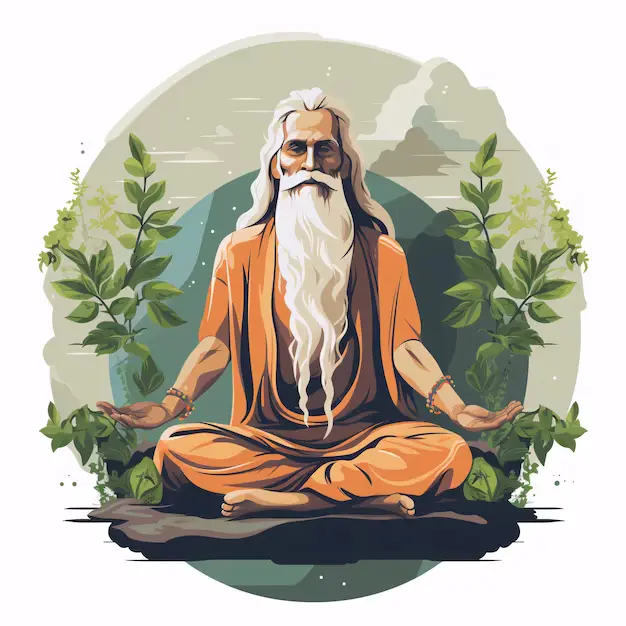
Only on enlightenment can this Ultimate Reality reveal its own perspective and expanse. So say the seers.
When someone asks a Wise man, the Knower of Brahman, “What is Brahman or Ultimate Reality?”. If the man opens his mouth to answer, then that is not the Ultimate Reality.
When he moves his eyes, definitely that is not the Absolute. When there is no answer, silence is the answer. But even Silence is not the Absolute.
How can one Attain Brahman or Wisdom?
Such is the cryptic elucidation of Brahman. Scriptural knowledge cannot give you the Veda, or Wisdom. Shankara says that one should contemplate upon the Ultimate Reality in all sincerity.
For this, one should release the link with whatever distorts this Absolute. For example, worldly life brings in desires, and desires stoke greed and impure actions proceed from such greed. Adi Shankara says that this chronology has to be withdrawn completely. One should give up all proceeds from motivated action.
When we fuse of all such desires, then there will be rest.
That rest will be one’s eternal resting place Self. Self is neither action nor non-action. It is anything that is illumined and manifests on its own. Sri Adi Shankara maintains that Meditation is the tool and Wisdom is the goal. This Wisdom is the very body of Brahman.
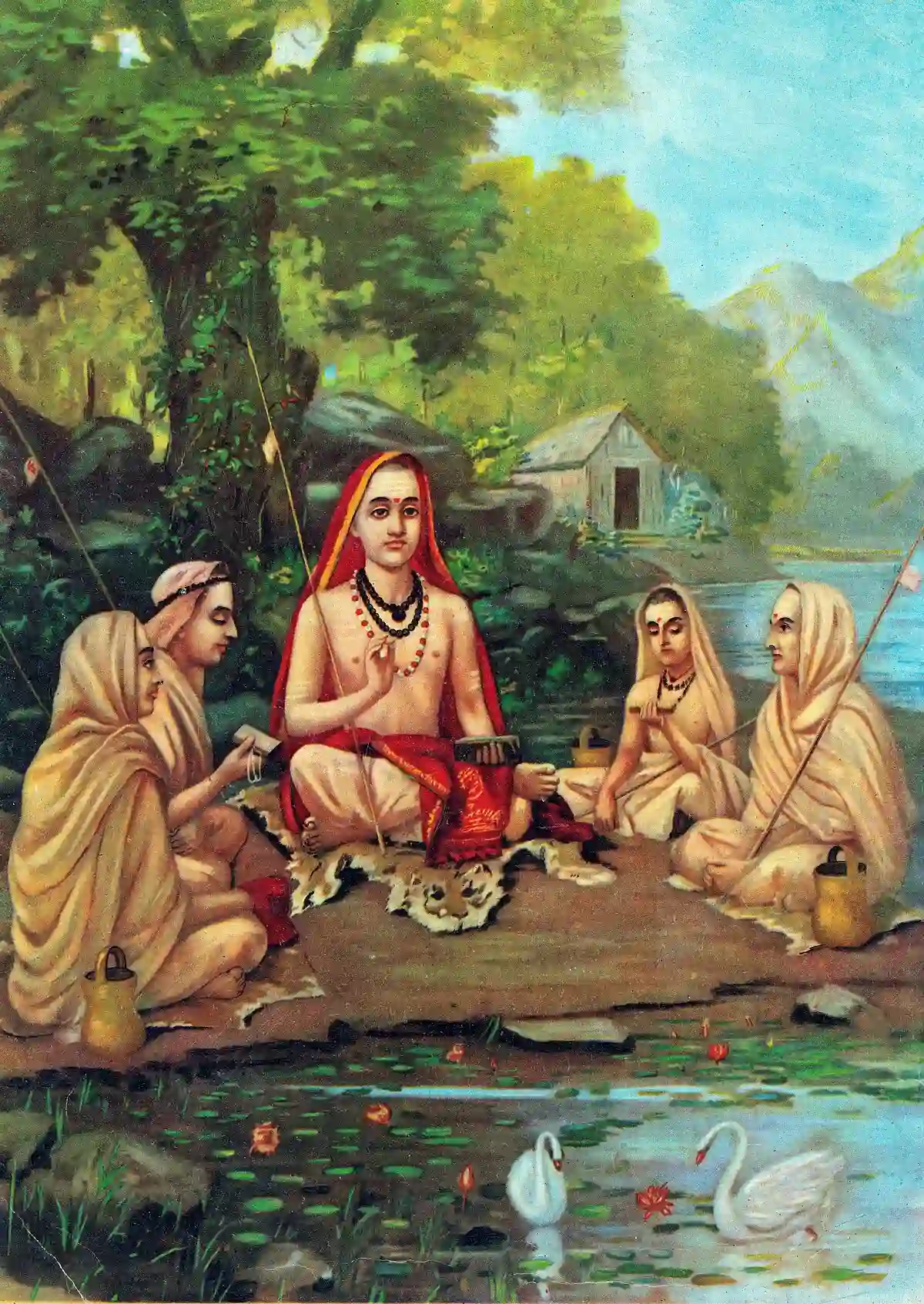
What do the Hymns of Sages reflect?
Brahman is beyond experience. A Sage who has touched his Core, Brahman, retains the super-sensory memory footprint of Brahman, which is even beyond memory and remembrance and becomes a living reality for the sage. The sage reveals the experience of the Absolute through hymns and prayers.
A person qualified to know Brahman shall be able to realize it, very easily. It is through these prayers and hymns revealed by the sages in the peak of Wisdom, that one realizes the Absolute. Just knowing the Vedas is not sufficient.
Knowing the Vedas can utmost give knowledge at an intellectual level. True Wisdom comes when the knots of the hearts break and one experiences the core.
Pointing towards the Moon and Brahman
A pertinent example would be that a knower of the moon may point to the tree. The one interested in understanding what the man is pointing towards pays attention to the outstretched hand of the Knower.
Some may end up looking at the outstretched finger of the man. Certain others will graduate further, they will look in the direction of the finger and see the outstretched finger pointing towards a tree. Certain others will get closer and adjust their eyes exactly parallel to the index finger and see that the finger is pointing towards a particular branch of the tree, which is at a distance.

Out of many who do it, some will see further and see that the finger is pointing to a leaf on the branch. Out of millions who have tried, only a couple will see that the finger is actually pointing towards the Moon which is behind the leaf.
The journey from the outstretched hand to the moon is a long one. Many Sages have used many means to point towards Brahman and their works are like the outstretched hands of the Man pointing towards the Moon.
But only a man of Wisdom, who is ready, whose Sadhana or spiritual practice is sharp, shall be able to locate the Brahman. Brahman is the overall subject matter of the Vedic prayer and hymns that the sages have composed.
Importance of Knowledge towards Brahman Realization
In the realization of Wisdom, which is the chief attribute of Brahman, Knowledge is an important component. Without Knowledge, one cannot attain Brahman.
Adi Shankara reveals that one should acquire Vedic Knowledge by all means. It is not optional, because although Vedic Knowledge cannot make one Brahman realized, the absence of Vedic Knowledge is like being maimed and trying to climb the Himalayas.
Without the right tools, one cannot progress on the path to Wisdom. Vedic Knowledge is mandatory, according to Shankara, and denotes the preliminary step as one proceeds to wisdom.
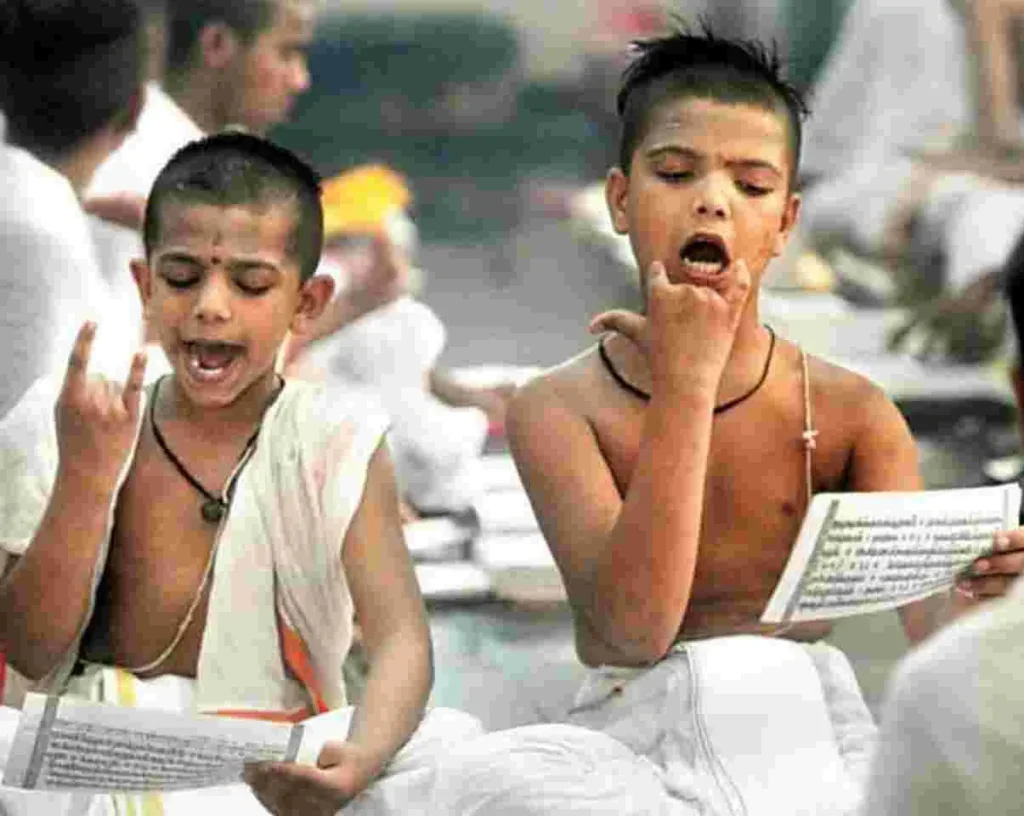
Vedic Knowledge is the instrument that furnishes knowledge about the dimensions which are beyond senses and direct perception. It also provides means to enhance our perception.
So, we can ready ourselves to contact that realm, that lies far beyond the ken of our ordinary senses. The Vedas point to what is desirable for our journey and what is not, thus fine-tuning our inner instruments to enlighten ourselves.
Test your Alignment with the Spiritual Subject Matter (only 7 Questions)
The scores generated in this Quiz are relative. There are no right or wrong answers. A percentage towards 100 indicates that you are more aligned to the overall subject matter
Purification through Tapasya and Grace of God
Shankara calls this entire process of aggregation Wisdom, Brahman. These include rites, rituals, purificatory processes, following all that is conducive and rejecting all those things which are not conducive towards nurturing such Wisdom.
Such Cultivation cannot be sporadic or intermittent, Shankara exhorts. One should undertake all these preliminaries as Tapasya or austerities. Shankara says that this is Yajna or Sacrifice. On one hand, the austerities and sacrifice become a tool.
On the other hand, there is the guidance of the Lord, through the inner instrument which has been strengthened by Tapasya. Such a person is an Ascetic of the highest order and only he is a candidate to adorn such Wisdom.

Vedanta reveals that such individuals enter into the world of Wisdom and become liberated at the end of their lifetime. When true Wisdom dawns on them, that Supreme Wisdom automatically relieves them of all compulsions of rites and rituals.
Scriptures will stop dictating such Men who have attained Brahman, Supreme Wisdom. In this condition, obscurity and doubt leave the mind. All areas of their consciousness are fully lit, with no scope for darkness.
Please Like the Blog and Share it for Maximum Reach

